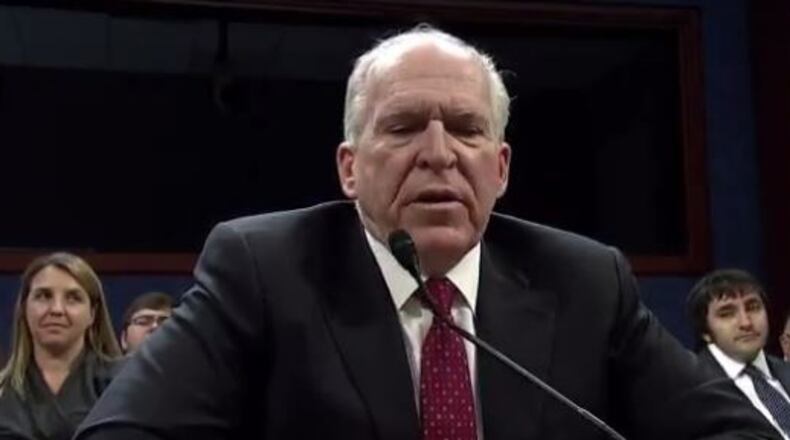Former CIA Director John Brennan told Congress on Tuesday that he was so concerned about intelligence that showed contacts between Russian officials and people linked to the campaign of President Donald Trump, that he warned key members of Congress and other intelligence agencies about the Russian actions, and sent that information on to the FBI for further investigation.
It became very clear to me last summer, that Russia was engaged in a very aggressive and wide ranging effort to interfere," Brennan said, revealing that he had brought in experts from around the U.S. Intelligence Community to try to figure out what the Kremlin was doing.
"I encountered and am aware of information and intelligence that revealed contacts and interactions between Russian officials and US Persons involved in the Trump campaign," Brennan told the House Intelligence Committee, as part of its review of Russian interference in the 2016 U.S. elections.
At a hearing, Brennan refused to identify anyone by name, or give any indication as to whether the Russians had been successful in getting the "witting or unwitting" help of any Americans, to further the Kremlin's 2016 efforts.
Pressed by several GOP lawmakers, Brennan acknowledged that he did not know of any evidence of collusion between the Trump Campaign and the Kremlin - but Brennan said that was for the FBI to investigate, not the CIA.
"I don't know whether or not such collusion - and that's your term - such collusion existed, I don't know," Brennan said.
Brennan also denied that he had made last minute requests to unmask names of any U.S. Persons - possibly linked to the Trump Campaign - before the former CIA Director left the agency as President Trump was sworn into office on January 20, 2017.
The Russia investigation was also grabbing the attention of Senators at the same time, as Director of National Intelligence Dan Coats refused to say whether he had been pressured by the President - or by White House officials - to try to get the FBI to drop its investigation into the Russia matter.
"I don't feel it's appropriate to characterize conversations with the President," Coats said.
A former Senator, Coats seemed ill at ease as he sidestepped the queries of some of his former colleagues.
About the Author
The Latest
Featured



